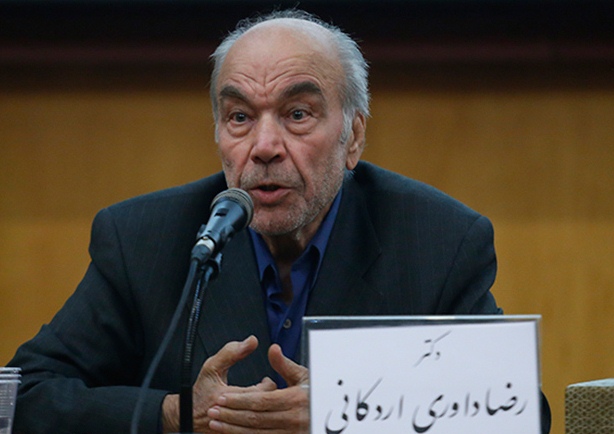A new translation of Al-Musiqa al-Kabir has been launched in Tehran. The book, which is known in the West as the Book of Music, was written in Arabic by prominent Iranian philosopher Abu Nasr Farabi almost a millennium ago. It has been translated and annotated by late Mehdi Barkeshli. The keynote speaker at the ceremony, which was held at the Conference Center of Sorush Publishing House, was Dr. Reza Davari Ardakani, the president of the Academy of Sciences of Iran, who has hailed Farabi as the founder of Islamic philosophy. The following is an excerpt of a report a 99 issue (July 2014) of Etelaat Hekmat va Marefat Monthly published on the ceremony:
A ceremony was held on June 17 at the Conference Center of Sorush Publishing House to launch a translation by late Mehdi Barkeshli of Al-Musiqa al-Kabir penned by Abu Nasr Farabi. Dr. Reza Davari Ardakani, the president of the Academy of Sciences of Iran, was on hand for the ceremony. […]
In a keynote speech, Dr. Davari Ardakani recalled the importance Farabi attached to music and said, “Almost five decades ago, after years-long research I wrote in a book that Farabi was the founder of Islamic philosophy. Many Orientalists took issue with what I had said, suggesting instead that Islamic philosophy was an imitation of Greek philosophy and thus had no founders. What stands out about Farabi is that he was a well-rounded scientist. Definitely, a person who is good at several branches of science is a successful individual. In the past, scientists would not limit themselves to a branch of knowledge. Specialization of science is a rather new phenomenon. […]
He went on to say that Farabi masterly brought together Greek philosophy, Islamic wisdom and other branches of science which were prevalent at the time. “Whenever he touched on , he would not draw a line between politics and philosophy. That is indicative of his thorough knowledge of Greek philosophy. After all, politics and philosophy were always inter-related.”
Dr. Davari said that nothing walls off music from other branches of science, adding, “In the eyes of Farabi too there is no separation line between music and other sciences. Rather, Farabi places music in the same column as mathematics. To him, music falls into three distinct categories: music that entertains the audience, music that touches the audience, and music that helps the audience fantasize. The third category has been dubbed the most difficult.”
